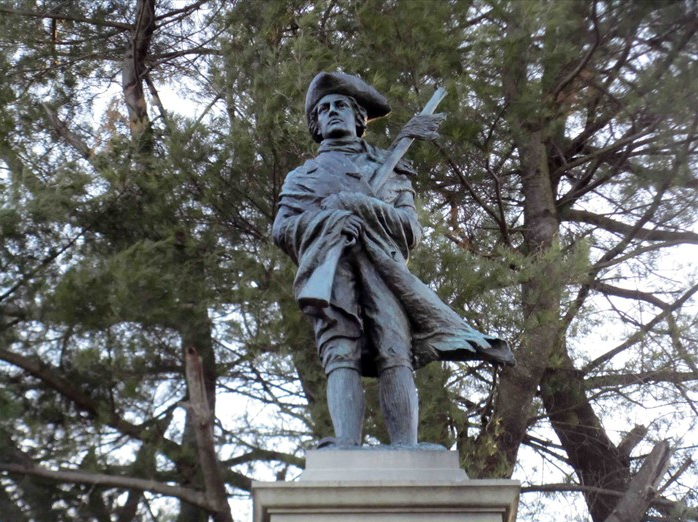
Editor’s note: The following is extracted from The World’s Greatest Military Spies and Secret Service Agents, by George Barton (published 1917).
This is the story of how a private soldier in the New Jersey Brigade displayed remarkable shrewdness and unusual courage, and participated in the glory of one of the most successful campaigns of the Revolutionary War by acting as the agent of General Lafayette in entering the British lines, and obtaining valuable information concerning the movements of Cornwallis.
It is quite possible that other private soldiers of the Continental army may have performed exploits just as thrilling in their nature, but Charles Morgan had the good fortune to be the man of the hour, and the fact that he secured precisely the information that was desired at one of the critical stages of the Revolution stamps him as a man of more than ordinary intelligence and resourcefulness. Nothing succeeds like success, and Morgan succeeded far beyond his most sanguine expectations.
General Lafayette had reached a point in his campaign where he desired to obtain accurate information regarding the resources and intentions of the enemy. He had been worrying Cornwallis for several weeks and in the summer of 1781 the British commander reached Virginia after vainly pursuing the French general and destroying millions of dollars’ worth of property. Eventually he reached Yorktown, on a narrow peninsula at the mouth of the York River. He had no desire to go to this place, but did so because there was nothing else to do under the circumstances. During his chase of Lafayette he boastingly said: “The boy cannot escape me,” but to his amazement the youngster with a larger army had turned around and begun to chase him. It was then that Cornwallis had retreated to Yorktown in order to get help by sea from New York. There he began the work of fortifying himself, little dreaming that he was placing himself in a trap from which it would be almost impossible to escape. While he was waiting for the soldiers to arrive from New York a French fleet of warships under Count de Grasse was coming to block him. This was the great opportunity of the Continental army to strike a blow that might be heard around the world. Washington’s plan, and it was concurred in by Lafayette, was to march rapidly south from the Hudson to Yorktown, and, with the help of the French fleet on one side and Lafayette and his army on the other, to capture Cornwallis with his whole force. Needless to say, a movement of this character required an immense sum of money for provisions, pay and powder. In this crisis Robert Morris, patriot and Philadelphia financier, came to the rescue and furnished nearly $1,500,000 for the work of putting the patriot army in the proper condition.
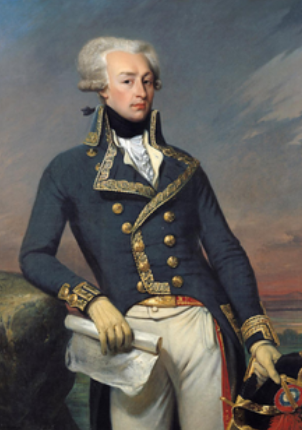
Lafayette disposed his forces with great military ability, but there were some points in the proposed plan of campaign which were not quite clear to his mind. He was anxious to procure exact information of the strength of the forces under Cornwallis, and if possible to learn the exact nature of that general’s plan of campaign. He looked about him for some courageous and intelligent man who could obtain the information he desired. His choice fell upon Charles Morgan, a member of the New Jersey Brigade, who had attracted his attention by bravery in battle. He sent for Morgan and told him that he considered him a proper agent for the accomplishment of his purpose and proposed that he should enter the British camp in the character of a deserter, but in reality a spy.
The soldier was delighted at the thought of being selected for such a hazardous enterprise. Lafayette at that time was in all the glory of his young manhood. To Morgan he was the very embodiment of romance. He had looked upon him for months with wonder and delight. He was to him the bright particular hero of the Revolution. That a man should give up family, friends and fortune, and all of the prospects of a great career, should leave his own country to go to a foreign shore for the purpose of casting his lot with the struggling colonists, made him sublimely heroic. The courtly airs of the young nobleman also captivated the imagination of the New Jersey soldier. Morgan, before entering the army, had been a farmer. He was sturdy and wholesome, yet without the benefits of an education, and the French general dazzled him with his simplicity of manner no less than by his natural assumption of authority. He could scarcely believe his ears when he was told that he was to act as the confidential agent of the General in such an important enterprise.
“This mission,” said Lafayette, “is a dangerous one. It may cost you your life. Under the circumstances I am not willing to order you to do what I desire. If you go to the camp of Cornwallis it must be a voluntary act, and with the full understanding of its possible consequences.”
“I am perfectly willing,” was the prompt reply, “and am glad to serve you and my country.”
The Marquis beamed upon him with satisfaction in his countenance. He spoke to him in a fatherly manner and added:
“Now, if there is any assistance you require from me, either with money or men, do not hesitate to ask for it.”
Morgan shook his head.
“None at all. I am glad to take the risk, but I would not like to do this work unless my motives are perfectly understood. I only ask one thing and that is that if I should be detected and executed you will cause a notice to be inserted in the New Jersey papers saying that I was acting under the orders of my commanding officer.”
The required condition was readily accepted by the General, who then proceeded to explain just what he wished to ascertain.
That night Morgan entered the British lines in the guise of a deserter, and was warmly welcomed by the English soldiers. The officer who first met him looked at Morgan with some curiosity, and said:
“Why did you leave the rebels? Were you afraid that they were about to be defeated?”
Morgan protested warmly that he had no such thought in his mind.
“I have been with the American army from the beginning of the war,” he said, “and I went into the contest with all my heart and soul. While I served with General Washington I was perfectly satisfied and I would have gone until the end, but when they put me under the charge of a Frenchman I felt that it was time to call a halt. I was unwilling to fight under a foreigner. I did not like it, I chafed under it, and finally I made up my mind to desert, and here I am.”
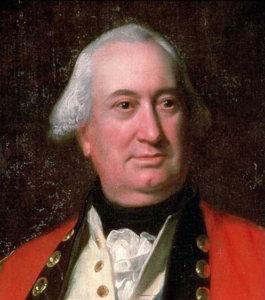
With this story, which was given with an air of the greatest plausibility, the British were satisfied. They received the supposed deserter without suspicion and assigned him to duty as a soldier in one of the English regiments. But before going on actual duty the young man was taken to Cornwallis and his story repeated. The British general was attired in all the glory of his high office and the members of his staff presented a glittering array of gold lace. Morgan could not help but contrast their prosperous appearance with the shabby and threadbare condition of the American army. Cornwallis was an imposing looking man who evidently was filled with the importance of his rank. He spoke harshly enough to his officers, but assumed a kindly manner with the deserter from the American ranks.
“How many men has Lafayette under his command?” he asked.
Morgan gave a quick reply, giving the number at much less than the actual force under the French general.
“How long will it take the Marquis to cross the James River?” asked Cornwallis.
“Three hours, my lord,” was the answer.
“Three hours,” exclaimed Cornwallis. “Don’t you think it is more likely to take three days?”
“Not at all, my lord,” was the response. “The Marquis has a certain number of boats, and each boat will carry a certain number of men, and if your Lordship will take the trouble of calculating you can find that he can cross the stream in about three hours.”
Cornwallis turned to his officers and began speaking in an undertone to them. There was much discussion and a great deal of shaking of heads, and finally the Earl said in the hearing of Morgan:
“The scheme will not do. We will have to change some of the lines.”
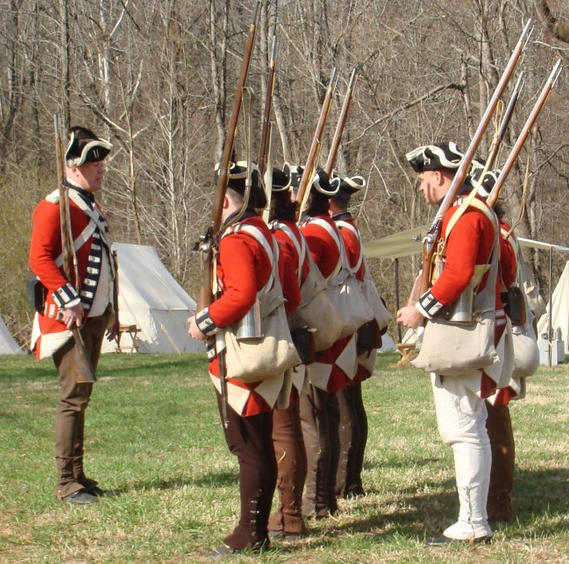
After that Morgan was assigned to his position with one of the English regiments. He was a hale fellow well met, and it did not take him long to win their confidence. The circumstances under which he had come to the British army gave him considerable latitude and he was able to go and come pretty much as he pleased. He talked freely with the officers and they, in turn, regarding him as a zealous convert to their cause, did not hesitate to furnish him with the kind of information which he most desired. Once or twice after that he was called before Cornwallis and cross-questioned concerning the plans of the American army. He stood this ordeal with amazing self-possession, and by his native shrewdness managed to obtain much more information than he gave, the difference being that his news was the product of his imagination, while the information he obtained was accurate and clearly outlined the movement of the forces under Cornwallis.
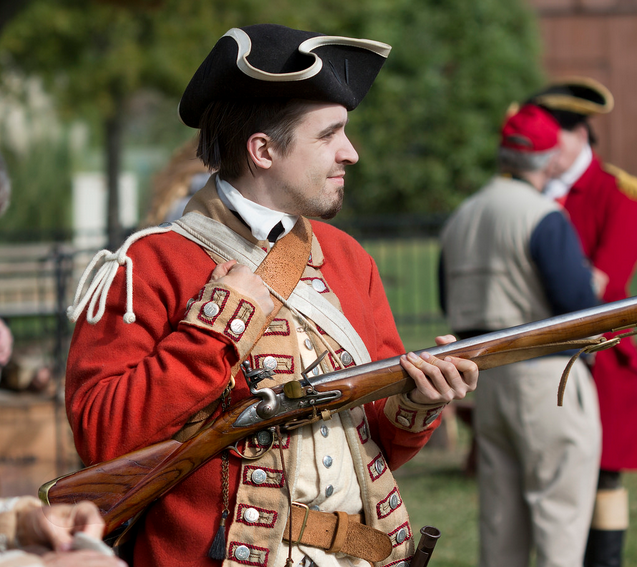
Morgan became the special friend of four of the men in his regiment. After some weeks they began to tell him of their troubles. They looked upon him as a superior and indicated by their manner a desire to follow his advice. Each soldier was allowed a certain amount of grog each day, and he further increased their regard for him by dividing his liquor with them. Presently they began to complain of the privations to which they had been subjected in the British camp. He listened with ready sympathy and when he felt that the time was ripe assured them privately that the American army was at the present time enjoying a plentiful supply of provisions. He also assured them that the victory of the American cause was as certain as that the sun would rise in the morning. Finally, he proposed that they should all desert and go over to the American army. The Englishmen were familiar with the passwords and numbered the sentries among their personal friends. This helped to make Morgan’s return to his own army comparatively easy.
Their plans were carefully made and shortly before midnight the five men, headed by Morgan, left the British camp. They were halted by a sentinel, who told them that they would not be permitted to leave the British lines without a passport.
“We are only on a lark,” Morgan assured him, “and if you will let us go by we will promise to return before daylight.”
“But if I do, it will get me into trouble,” insisted the man.
“Not at all,” was the ready retort. “You let us go and we will see that no harm comes to you.”
As a further proof of friendship the American produced the canteen which he had brought with him and gave the sentinel a liberal draught of the rum. They remained talking with him for a few minutes and then treated him to a second drink. After that he was in the humor to pass the entire regiment without either explanations or passports.
The experience which they had with this first man was repeated with two other sentinels, and eventually they found themselves outside of the British lines and headed toward the American camp.
It was an unpleasant journey. They had to make their way through swampy ground and several times found themselves up to their ankles in mud and water. The British deserters were very much depressed and at one stage of the trip would have gladly returned to their own camp, but Morgan had gone too far to permit anything of that kind. He continued to furnish them with liquor and in this way kept their courage buoyed up to the sticking point. Finally, just before daylight, they found themselves within sight of the American lines. The sun was shining when Morgan reached the American camp with the four British deserters trailing at his heels. He was received with great delight by his fellow patriots and almost immediately escorted to the headquarters of General Lafayette. The Marquis hastened to meet him and eagerly clapped him on the back.
“My friend,” he said, “I am delighted to see you again—to see you in the flesh.”
“I have carried out your instructions,” said Morgan, modestly.
“So I presume. But who is it you have with you?”
“These are four British soldiers who have decided to give themselves to the cause of liberty.”
The General directed that the recruits be fed and clothed and enlisted in the regiment to which Morgan was attached. After that he made Morgan sit down and tell the story of his stay in the camp of Cornwallis. This he was able to do with intelligence and in great detail. Lafayette thus obtained the information which he desired. He praised his messenger highly and told him that he would commend him to the good offices of General Washington. In the meantime he proposed to promote him to the rank of corporal, with the promise of still further promotion in the near future. But the volunteer spy shook his head.
“I thank you for your goodness. I appreciate it greatly, but I do not desire to go above the rank of an ordinary private. I have ability for a common soldier, but should I be promoted, my ability may not be equal to the occasion, and I would thus lose my character.”
General Lafayette laughed heartily at this unusual display of modesty, but assured Morgan that his services would not be forgotten and that at the proper time he would be rewarded for his sacrifice and his heroism.
Lafayette was now in a position to act with intelligence. The information that had been brought to him by his spy fortunately did not make it necessary for him to change his plan of campaign. He was in communication with other Continental officers and kept constantly informed of the progress of the campaign. He discovered many other things; that Clinton, at the head of the British forces in New York, was under the impression that Washington was getting ready to attack him. Washington encouraged him to think so. In order that the British general should not be disillusioned, the American continued to make every possible preparation for moving against New York. So cleverly was this ruse carried on that the members of Washington’s own army supposed that he was really getting ready to attack Clinton. When at length everything was just as he wished it, Washington suddenly broke camp and conducted his entire force with all possible speed across the country to the head of Chesapeake Bay and thus by vessels to Yorktown. It was truly a critical time in the Revolutionary War. While Washington was continuing his southern movement Lafayette and his army closed in on the other side. The British realized that they were gradually becoming the victims of a vast enveloping movement. Cornwallis put his spy glass to his eye and peered over the walls of his fortified town. On one side he beheld the French fleet, on the other side Washington’s troops, and on still another, Lafayette’s army. The Americans, 16,000 strong, were gradually but surely coming closer and closer. Cornwallis held out with great bravery for three weeks, but the constant rain of shells and hot shot made his position almost impossible. Finally, seeing that it was useless to struggle against fate, he surrendered. His army marched out on the 19th of October, 1781, to the tune of “The World’s Upside Down,” and it was—at least to the British. They were dazed and could not understand how such a powerful army and such a great empire should fall victims to what seemed to be a handful of untrained farmers. But in spite of their feeling it was over, and they were the vanquished.
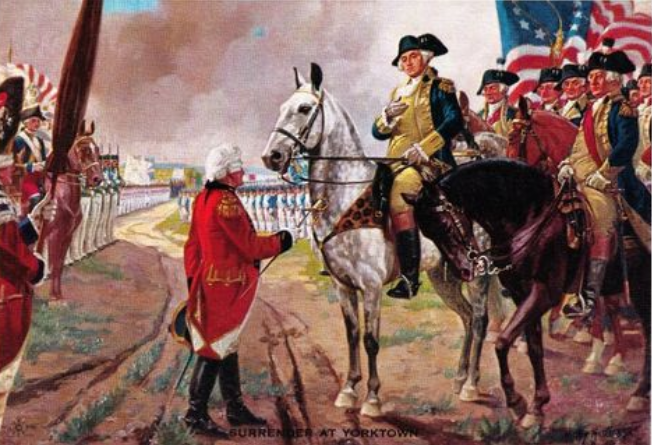
The fall of Yorktown practically ended the war of the Revolution. Washington had conquered. Lafayette’s confidence in the struggling colonists was fully vindicated and his great respect for George Washington increased. As has been said, it was the victory of a great and good man in a great and good cause.
The news of the surrender was sent post-haste to London. The excited messenger who announced the sad tidings to Lord North, the Prime Minister of the British Government, afterwards said that that functionary threw up his arms as though he had received a shot and cried dramatically:
“It is all over!”
And so it was; and in the victory at Yorktown none of the Continental troops fought more bravely or showed to greater advantage than those who served under the leadership of Lafayette. Among the privates in the New Jersey Brigade none fought with greater courage than Charles Morgan, who had served as the personal spy of the great Frenchman in the camp of Cornwallis. But in his case virtue and courage had to be their own reward. Many of the soldiers who deserved great honor were compelled to go unrewarded, and Charles Morgan was apparently one of these, for after his exploit, and the ending of the war, his name does not appear in any of the records of that great event. Like many other deserving men, he was lost in the mists of obscurity.

The Adventure of Private Morgan
1 Comment
Leave a Reply
Latest from Culture

Dangerous Left Wing Rhetoric
On Saturday, July 13, 2024, an assassin came within inches of murdering Donald Trump on a live broadcast. Democrat talking heads immediately split into two camps: some said Trump staged the shooting

Movie Review: Streets of Fire
Underrated. Yes, the acting is forced, the lines are flat, the sets limited, but it makes up for it by being awesome. It's more of a modern Western than anything.

Calvin Coolidge on Independence Day
Speech Given July 1926 We meet to celebrate the birthday of America. The coming of a new life always excites our interest. Although we know in the case of the individual that

Edward the Black Prince
"Valiant and gentle...the flower of all chivalry in the world at that time.”

The Weimar Years – Part 5
Summary of the German Revolution, 1918-1919.




1